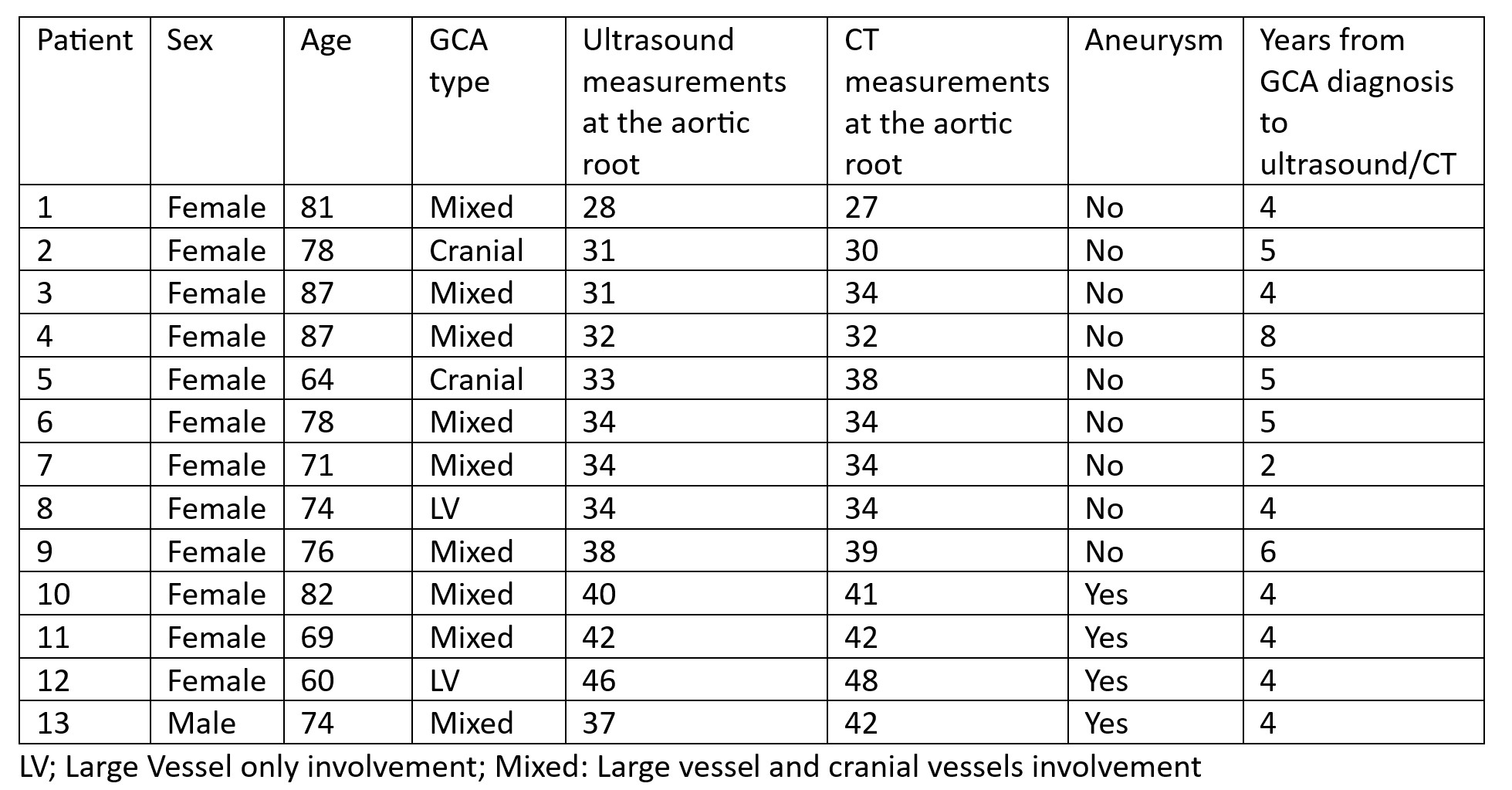Session Information
Date: Tuesday, November 14, 2023
Title: (2387–2424) Vasculitis – Non-ANCA-Associated & Related Disorders Poster III
Session Type: Poster Session C
Session Time: 9:00AM-11:00AM
Background/Purpose: Patients with Giant cell arteritis (GCA) face an elevated risk of aneurysm formation. Despite this, consensus regarding optimal aortic visualization methods and aneurysm monitoring frequency is still lacking. Low-frequency transducer ultrasound offers a potential solution, capable of visualizing the ascending aorta and aortic arch. We conducted a study to compare this ultrasound technique against Computed Tomography Angiography (CTA), the current gold standard for aortic evaluation.
Methods: We conducted our study at Martina Hansens Hospital in Bærum, Norway. We included patients diagnosed with GCA who also met the ACR/EULAR classification criteria for GCA. The ascending aorta’s diameter was measured using both ultrasound and CTA. Aortic aneurysm was defined as an ascending aorta diameter of ≥40 mm. The Student’s t-test was used to compare the results.
Results: Our pilot study included thirteen patients, twelve females, and one male, with an average disease duration of 4.6 years (95%CI 3.7-5.5). The mean diameter of the ascending aorta was 35.4 mm (95%CI 32.3-38.4) measured by ultrasound and 36.5 mm (95%CI 33.0-40.0) by CTA. The mean difference between the two methods was 1.15 mm (95%CI -0.07 to 2.38, p-value = 0.06). CTA identified four patients with an ascending aorta aneurysm, while ultrasound identified three. (Table 1). No aneurysms were found in the descending aorta by CTA.
Conclusion: Our preliminary findings suggest that ultrasound provides results comparable to CTA in assessing the ascending aorta diameter in GCA patients. This positions ultrasound as a potential tool for monitoring aortic aneurysm development in this patient group.
To cite this abstract in AMA style:
Bull Haaversen A, Kermani T, Brekke L, Molberg O, Diamantopoulos A. Ultrasound Is Comparable to Computed Tomography Angiography in Identifying Aortic Aneurysms in Patients with Giant Cell Arteritis [abstract]. Arthritis Rheumatol. 2023; 75 (suppl 9). https://acrabstracts.org/abstract/ultrasound-is-comparable-to-computed-tomography-angiography-in-identifying-aortic-aneurysms-in-patients-with-giant-cell-arteritis/. Accessed .« Back to ACR Convergence 2023
ACR Meeting Abstracts - https://acrabstracts.org/abstract/ultrasound-is-comparable-to-computed-tomography-angiography-in-identifying-aortic-aneurysms-in-patients-with-giant-cell-arteritis/

